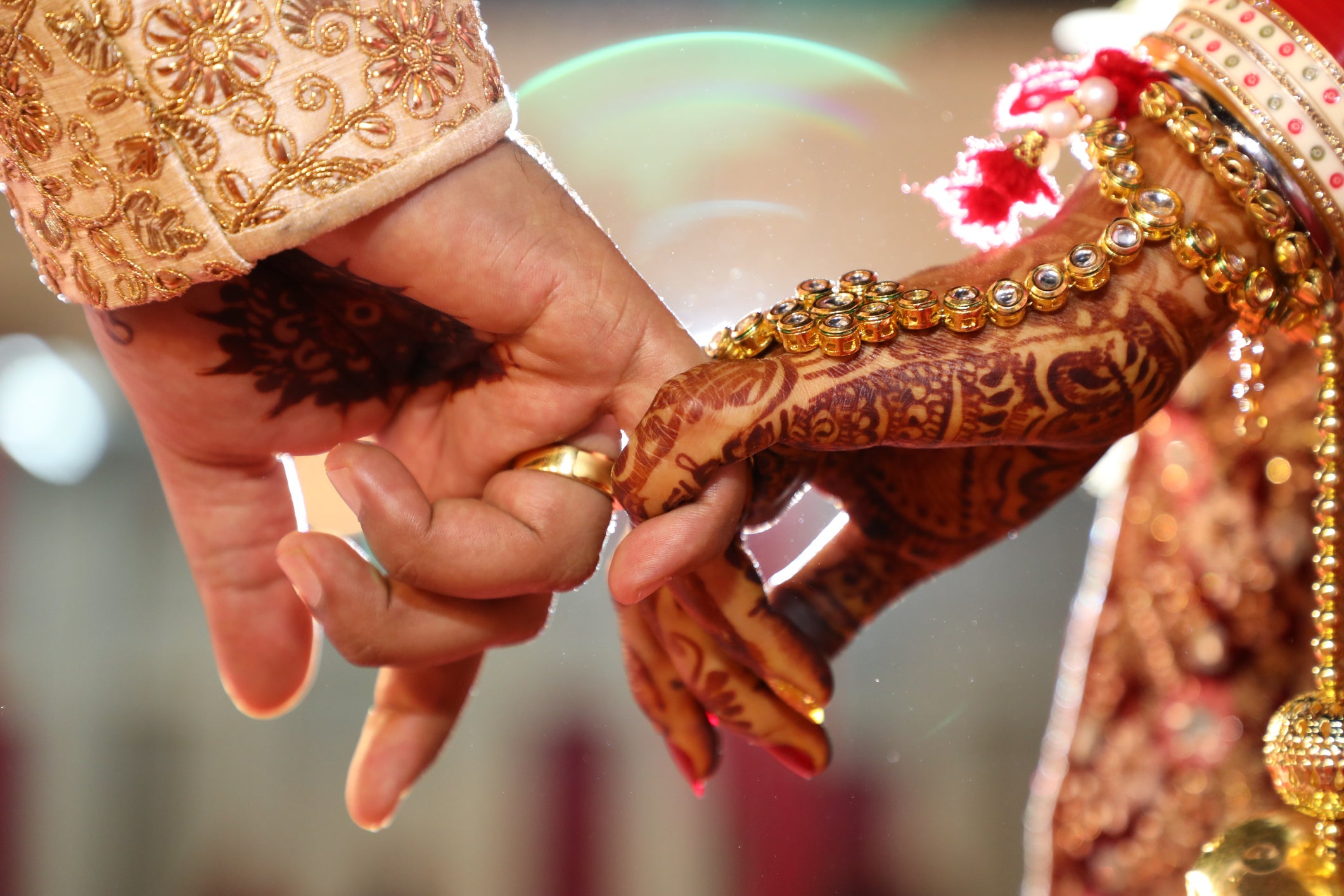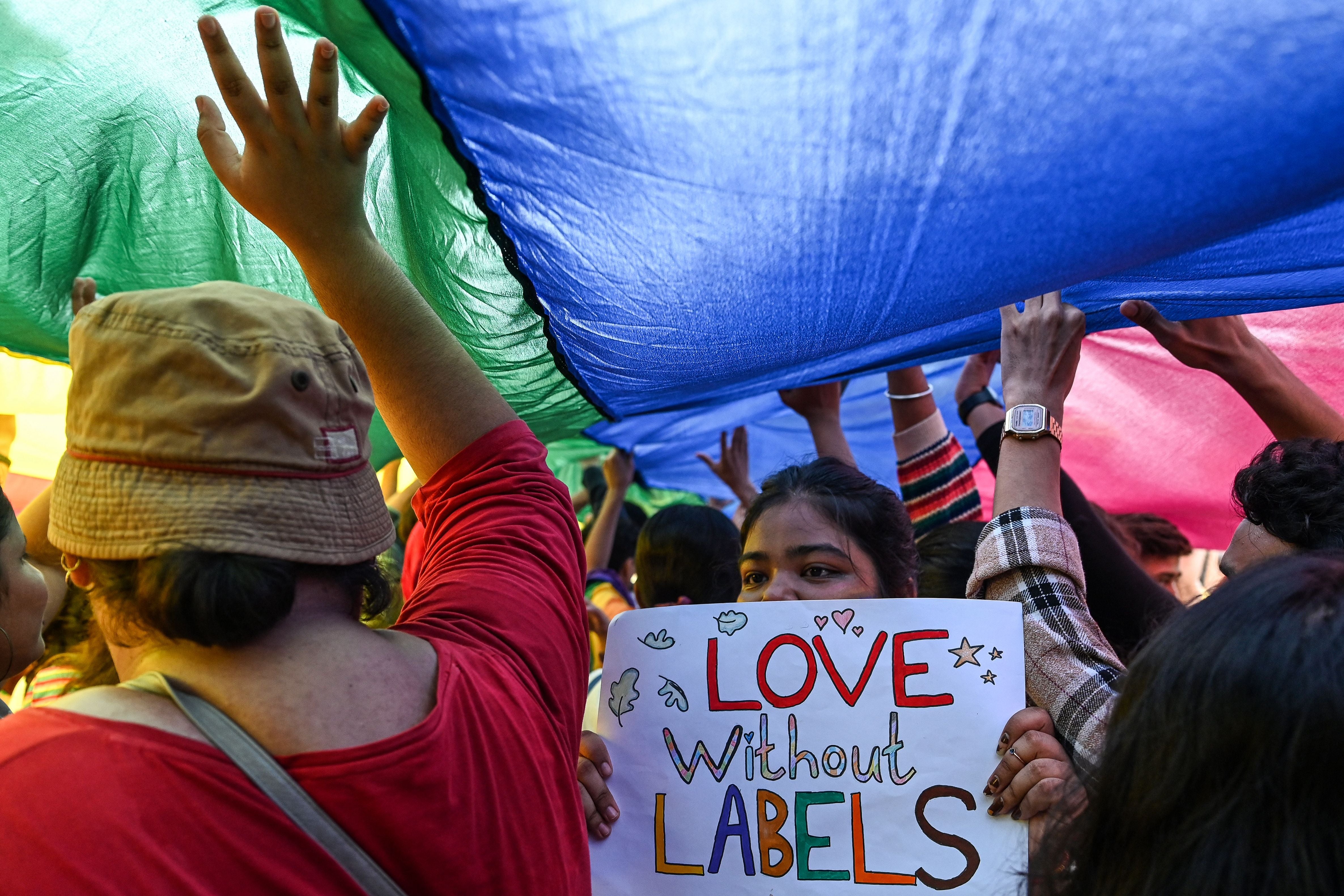Same-sex couple’s wedding in India sparks backlash from highest cleric in Sikhism
Dimple and Manisha tell Namita Singh they were fully transparent about having an LGBT+ wedding and that the priest agreed, even though India does not recognise same-sex marriage


Your support helps us to tell the story
From reproductive rights to climate change to Big Tech, The Independent is on the ground when the story is developing. Whether it's investigating the financials of Elon Musk's pro-Trump PAC or producing our latest documentary, 'The A Word', which shines a light on the American women fighting for reproductive rights, we know how important it is to parse out the facts from the messaging.
At such a critical moment in US history, we need reporters on the ground. Your donation allows us to keep sending journalists to speak to both sides of the story.
The Independent is trusted by Americans across the entire political spectrum. And unlike many other quality news outlets, we choose not to lock Americans out of our reporting and analysis with paywalls. We believe quality journalism should be available to everyone, paid for by those who can afford it.
Your support makes all the difference.When they were planning their wedding, Dimple and Manisha always agreed that they wanted their “big day” to include a traditional Sikh religious ceremony. A same-sex couple living in India’s Punjab state, they had no idea that their wedding day would trigger such a huge controversy and draw criticism from the highest priest in Sikhism himself.
Manisha, 21, said the priest was very encouraging when she approached a local gurdwara (the Sikh place of worship) with her fiance Dimple, 27, who goes by male pronouns.
“We spoke to him in the presence of my parents and told him that it is not a male-female wedding, but [rather] with a person who has been assigned female sex at birth,” she told The Independent.
India does not recognise same-sex marriage, but Manisha said that the priest, Hardev Singh, told her similar marriages had happened in the past. “He took my phone number, saying that he will discuss this with the gurdwara committee and call me back.”
The committee approved their union and the couple got married in front of the Sikh religious scripture, the Guru Granth Sahib, on 18 September.
Since then, a controversy has erupted over their wedding, prompting the priest to issue an apology for officiating the ceremony, amid criticims from the highest cleric in Sikhism, Giani Raghbir Singh.
Describing same-sex marriage as “unnatural and contrary to Sikh ethics”, Mr Singh told the BBC that the marriage of two women in the presence of the Guru Granth Sahib was “a severe moral and religious violation”.
The outlet reported that he has also ordered the suspension of the priest who oversaw the marriage rites and three others present during the ceremony.
The priest, Hardev Singh, has since claimed in an interview with the BBC that he did not know it was an LGBT+ wedding, arguing that one of the couple was wearing a turban for the ceremony. He did not respond to The Independent’s attempts to contact him by phone for comment.
Questioning his claim, Manisha said: “We told him all the details in person. In fact we submitted the documents, including biometric identity proof, [and the] Aadhaar [government-issued ID] card where it is clear that Dimple is female [assigned female sex at birth].”
Dimple’s parents knew all along that he feels like a man trapped inside a woman’s body, the 27-year-old told The Independent. “I was very open from the beginning. I behaved like a boy who was attracted to women. So, I never hid anything from my family.”
However, Manisha said her parents took some convincing. The reluctance came in part because same-sex marriage is not recognised in India, while gay sex was only decriminalised in 2018. The family also come from a rural background, where there are fewer conversations around gender and sexuality than in the major Indian metropolises.
India’s supreme court is currently in the process of hearing arguments in favour of recognising same-sex marriage. The government has previously opposed marriage equality, calling it an “urban elitist view” and defending the institution of marriage as “exclusively heterogeneous”.

“When I told my parents that I wanted to marry Dimple, my mother refused right away,” said Manisha.
“But she came around later the same day. And once she was on board, she convinced my father as well. It did not take very long to persuade them about our alliance. You know what they say: ‘Parents can do anything for their child’s happiness’.”
Despite the opposition they have faced at different stages from family, state and society, Manisha never doubted her decision to marry Dimple. From the moment they started dating, it was a whirlwind romance.
“I have known him for sometime. We work in the same factory. So, I knew almost everything about him,” she said, referring to Dimple’s previous partners.
“I was dating a woman for five years before we broke up. And another woman for a few months. I frequently turned to Manisha when seeking resolution of emotional issues,” said Dimple. When they finally began dating, the foundation of their friendship meant it did not take long to consider marriage.
“It was within a week of us dating that I proposed,” she said.
Dimple is still contemplating whether to get his gender reassignment surgery done. “I did think and went to hospital for the surgery. However, the doctors said that most people are not satisfied with the outcome. So, I am thinking of getting it done from outside of India.”
But that will not be soon, he said, and he is in no rush.
“I have just started spending time with my wife. If she is happy with me and accepts me as it is, then I might not get it done at all.”



Join our commenting forum
Join thought-provoking conversations, follow other Independent readers and see their replies
Comments